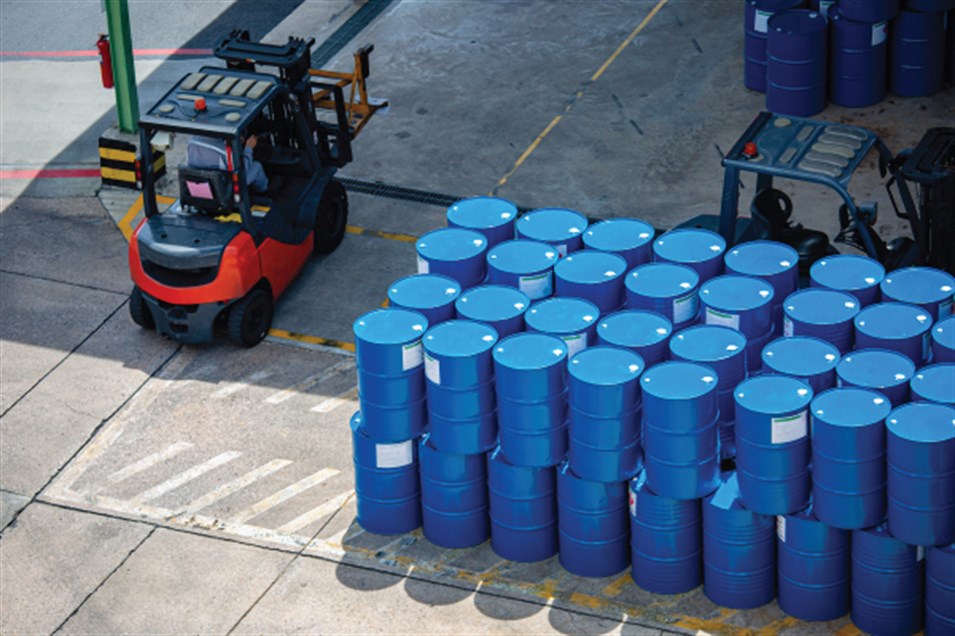Chemical Logistics is the process of organizing and managing the flow of chemicals and related materials from suppliers to manufacturers and consumers.
This process ensures that the right chemicals are delivered to the right places at the right times. Chemical logistics can involve transportation, storage, inventory management, and security.
The chemical industry is a major provider to the global economy. United States, accounts for more than $770 billion in annual sales and employs more than 1.1 million people all over the world. The chemical industry is also a major consumer of logistics services.
To keep up with the high demand for chemical products, companies need to have a well-organized and efficient chemical logistics operation.
There are several challenges involved in chemical logistics. One of the biggest challenges is ensuring the safe delivery of chemicals.
To do this, companies need to have a comprehensive understanding of the hazards associated with each chemical and the proper handling procedures. They also need to have a secure transportation network that can safely deliver chemicals to their destinations.
Another challenge is managing inventory. In the chemical industry, inventory can be very volatile and can quickly become outdated. Therefore, companies need to have a system for tracking inventory and also ensure that it is used efficiently.
As chemical logistics needs to work in compliance with the government regulations
an effective system for tracking the movement of chemicals becomes mandatory.
To manage the challenges of chemical logistics, companies need to have a comprehensive logistics management system, which should include:
- A system for tracking inventory
- A system for tracking the movement of chemicals
- Procedures for handling hazardous materials
- Procedures for complying with government regulations
By using a comprehensive logistics management system, companies can ensure that their chemical logistics operation is safe, efficient, and compliant with government regulations.
Logistics management is the process of organizing and managing the flow of goods and materials from point of origin to the point of consumption. It includes the planning, organizing, and controlling of the procurement, transportation, storage, and distribution of goods.
A comprehensive logistics management system can help companies manage their chemical logistics operations more safely and efficiently. The system can track inventory, monitor the movement of chemicals, and comply with government regulations. This can help companies ensure the safe handling of hazardous materials and compliance with government regulations.
To manage the safety and efficiency of a chemical logistics operations, companies should ensure the following:
- Chemical inventory management
- Chemical handling and transportation
- Chemical storage and loading
- Chemical Disposal
- Chemical inventory management
A hazardous material inventory should be kept up to date, and the corresponding safety data sheets (SDS) should be readily accessible. To manage the inventory, a company must also consider the following:
- Which chemicals are being used
- How much of each chemical is being used
- What are the hazards of each chemical
- Where are the chemicals being used
- Chemical handling and transportation
For safe and secure handling and transport of hazardous materials, a company should consider the following:
- Using the correct containers for each chemical
- Labeling each container with the appropriate hazard warnings
- Training employees on how to safely handle and transport hazardous materials
- Having emergency contingency plans always in place
Chemical storage and loading
To safely store and load hazardous materials, a company should consider the following:
- Storage areas should be well-ventilated and free of ignition
- Materials should be stored as recommended by suppliers
- Containers should be clearly labeled and in good condition
- Workers should be properly trained in safe handling procedures
- Loading docks should be clear of flammable materials and obstructions
- Emergency response plans should be in place in case of accidental release
The Russia-Ukraine conflict has undermined the possibilities of global economic revival from the COVID-19 pandemic shortly. This war has resulted in economic sanctions on several countries, with increased commodity prices, and disrupted supply chains, impacting multiple economies around the world. The chemical logistics market is expected to grow to $ 317.17 billion in 2026 at a CAGR of 3.9%.
The Chemical Logistics Market Research Report provides the latest market statistics, offering an in-depth insight into the chemical logistics industry, including global market size, regional shares, competition, and their respective market shares, detailed market segments, market trends, and opportunities.
According to the reports, demand for chemicals in industries such as chemical, pharmaceutical, cosmetic, oil and gas, specialty chemicals, food, and others boosts the market growth.
Governments around the world are investing in creating advanced and more secure chemical logistics systems to avoid any hazardous issues thus aiding the growth of the chemical logistics market.
Marker players like, Allcargo Logistics takes care of these challenges and makes transporting chemicals more effortless and seamless for you. So, when it comes to end-to-end solutions for your logistics needs in the chemical sector, you can surely rely on to the industry experts like, Allcargo Logistics.






